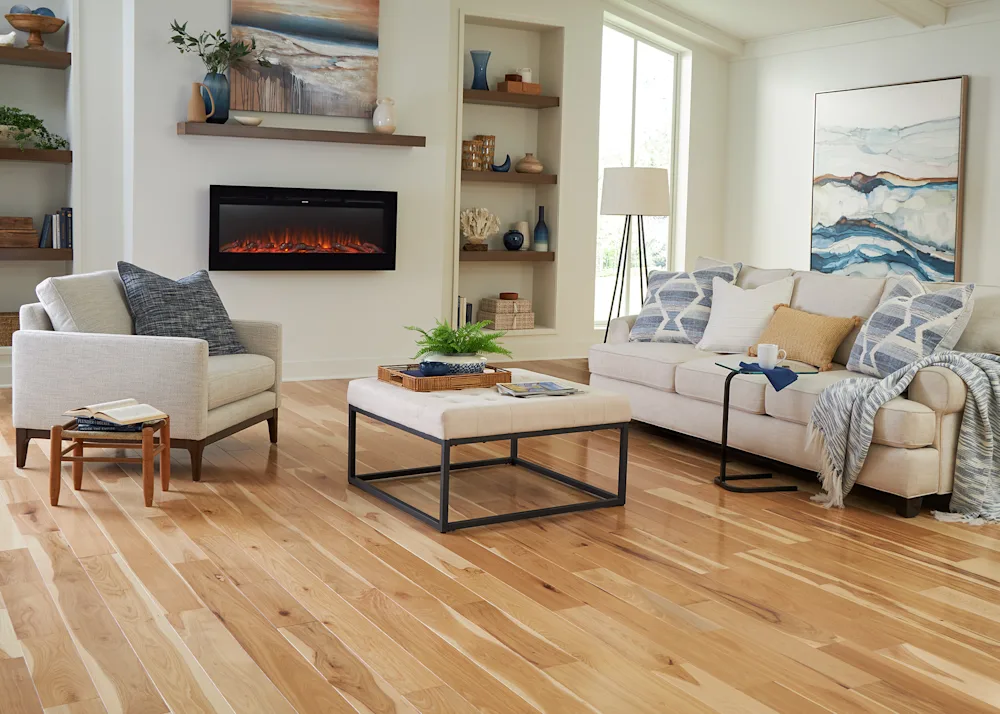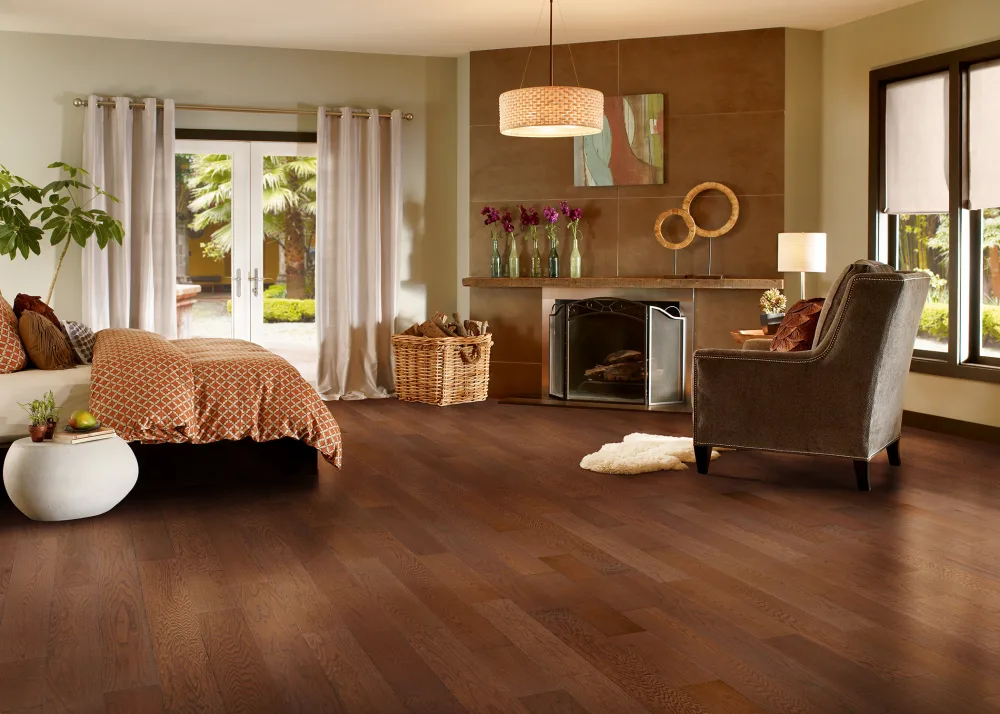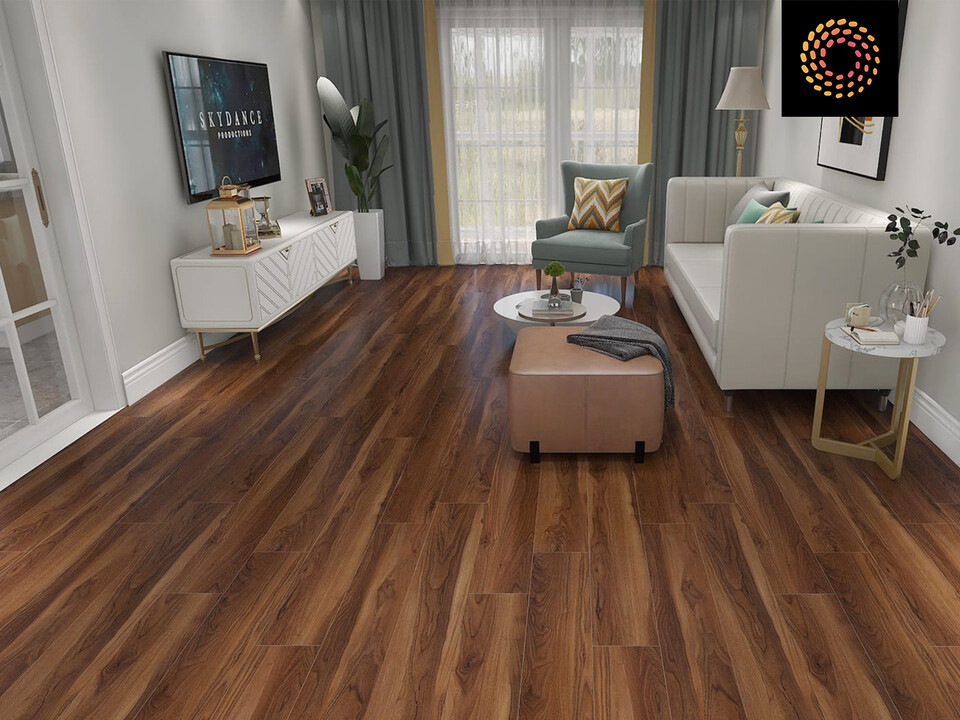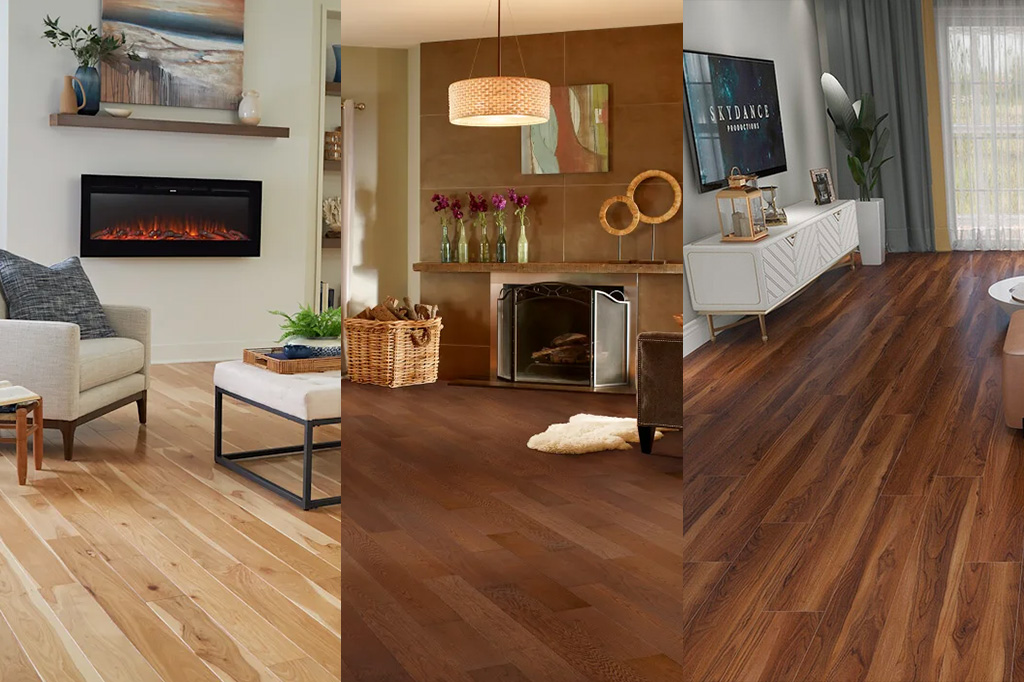When selecting flooring, numerous options exist, each with unique advantages and disadvantages. Among these are solid wood, engineered wood, and SPC (Stone Plastic Composite) flooring. It’s important to grasp the characteristics of each to determine which one best fits your needs.
Table of Contents
ToggleSolid Wood Flooring

Solid wood flooring represents the pinnacle of classic style, crafted from robust 3/4-inch thick hardwood such as oak or cherry. Its charm is rooted in its natural beauty, displaying unique grain patterns and warm tones that imbue spaces with a traditional and welcoming ambiance.
This type of flooring can endure the test of time because it can be sanded and refinished numerous times, rejuvenating its original sheen while extending its lifespan. However, solid wood is prone to moisture damage and warping in damp conditions, making it most suitable for rooms with consistent temperature and low humidity.
Pros | Cons |
|
|
Engineered Wood Flooring

Engineered wood flooring is a flexible and robust choice, featuring a wood veneer layer atop a core composed of plywood or high-density fiberboard (HDF). This layered construction provides greater stability than solid wood, reducing the risk of warping or contracting due to moisture or temperature fluctuations. Although engineered wood can be sanded and refinished to maintain its appearance, it doesn’t offer as many refinishing opportunities as solid wood.
However, engineered wood flooring is available in a wide range of styles and finishes, allowing it to suit various aesthetic preferences. This flooring option is cost-effective for most parts of a home, including areas like basements, where moisture levels might be higher.
Pros | Cons |
|
|
SPC Flooring

SPC (Stone Plastic Composite) flooring is recognized for its outstanding durability and solid build quality. The heart of SPC flooring consists of a mix of limestone powder and stabilizers, resulting in a strong and stable core. This is topped with a layer of vinyl and a tough wear layer that defends against scratches, stains, and moisture, making it a reliable choice for busy and wet environments such as kitchens and bathrooms.
The installation process for SPC flooring is user-friendly, generally involving a click-lock system that simplifies the setup. It also demands little maintenance, adding to its practicality. SPC flooring is also highly customizable, capable of replicating the look of various natural materials like wood, stone, or ceramic tile, which allows it to fit a wide range of decorative styles.
Pros | Cons |
|
|
conclusion
Ultimately, the optimal flooring choice hinges on individual needs and preferences. Those seeking a timeless, natural aesthetic with a willingness to undertake additional upkeep may find solid wood flooring most suitable. For those prioritizing stability, moisture resistance, and visual appeal, engineered wood flooring might be preferable. Conversely, individuals placing a premium on durability and waterproof qualities may find SPC flooring to be the ideal option for their homes.

